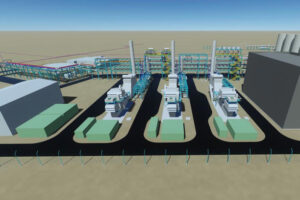Kirby Misperton shows we need an open debate about our energy future
While Third Energy has got its planning permission, it is clear that it has failed to obtain a social licence from the local community. The sentiment of those living in Ryedale was overwhelmingly against shale gas development. Their understandable concerns were about the cumulative impact that widespread commercial shale development might have on the North Yorkshire landscape, but we are a long way away from that.
The industry is in its very earliest stages of development and the Kirby Misperton site is not representative of the exploration and appraisal programme that must be followed to determine whether or not shale gas is commercially viable. A programme of 20-30 exploratory wells will be required across the licence blocks of the Bowland shale.
The Kirby Misperton decision should have no bearing on the outcome of the Cuadrilla appeal, but the industry will feel buoyed by the fact that it is up and running again after a five-year hiatus. Other companies are waiting in the wings, INEOS, for example, has already embarked on a programme of seismic surveys and has begun public engagement activities at its licence blocks.
Planning professionals and local politicians will continue to find themselves caught firmly in the middle of the UK’s heated shale gas debate.
Last year the 14th onshore oil and gas licensing round awarded 93 onshore licences for 159 new blocks. After the changes introduced by the Infrastructure Bill, the licence holders must undertake 12 months of environmental monitoring; however, soon enough they will be coming forward with development plans that will require planning permissions. Thus, the campaigners are right when they say that the Kirby Misperton decision is just the beginning.
What we have seen, first in Lancashire, and now in North Yorkshire, is bound to be repeated elsewhere and with growing frequency. It seems that Nottinghamshire may be the next venue as IGas is considering its options. Given its current strong support for shale gas development, the UK government is not likely to declare a moratorium any time soon.
Meanwhile, local communities have no alternative but to protest and make their feelings known, as they did so eloquently at Kirby Misperton. This will mean that planning professionals and local politicians will continue to find themselves caught firmly in the middle of the UK’s heated shale gas debate.
The issues raised by both sides at Kirby Misperton show that we need a much broader and open debate about the UK’s energy future in the light of our strong commitment to climate change. Perhaps the imminent report from the Climate Change Committee about its views on shale gas development can spark such a debate.
















